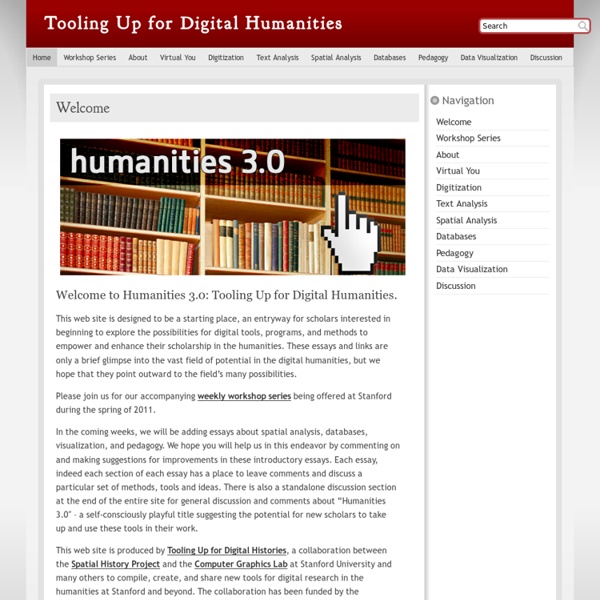



» Getting Started in Digital Humanities Journal of Digital Humanities Lisa Spiro When I presented at the Great Lakes College Association’s New Directions workshop on digital humanities (DH) in October, I tried to answer the question “Why digital humanities?” But I discovered that an equally important question is “How do you do digital humanities?” Although participants seemed to be excited about the potential of digital humanities, some weren’t sure how to get started and where to go for support and training. Building on the slides I presented at the workshop, I’d like to offer some ideas for how a newcomer might get acquainted with the community and dive into digital humanities work. Determine what goals or questions motivate you As with any project, a research question, intellectual passion, or pedagogical goal should drive your work. Get acquainted with digital humanities Participate in the digital humanities community Attend a THATCamp. Stay informed Explore examples for inspiration and models To find projects, see, for example, Pursue training.
What is the Spatial Turn? · Spatial Humanities What is a turn? Humanities scholars speak of a quantitative turn in history in the 1960s, a linguistic and cultural turn of the 1980s in history and literature, and even more recently an animal turn. Beyond the academy, to turn implies retrospection, a process of stopping in the road and glancing backwards at the way by which one has come. May the weary traveler turn from life's dusty road and in the wayside shade, out of this clear, cool fountain drink, and rest “Landscape turns” and “spatial turns” are referred to throughout the academic disciplines, often with reference to GIS and the neogeography revolution that puts mapping within the grasp of every high-school student. This essay documents the contributions of the university disciplines in the period from 1880 to 1960, a moment supremely fertile for academic discourse, when scholars in history, religion, and psychology reflected on our nature as beings situated in space.